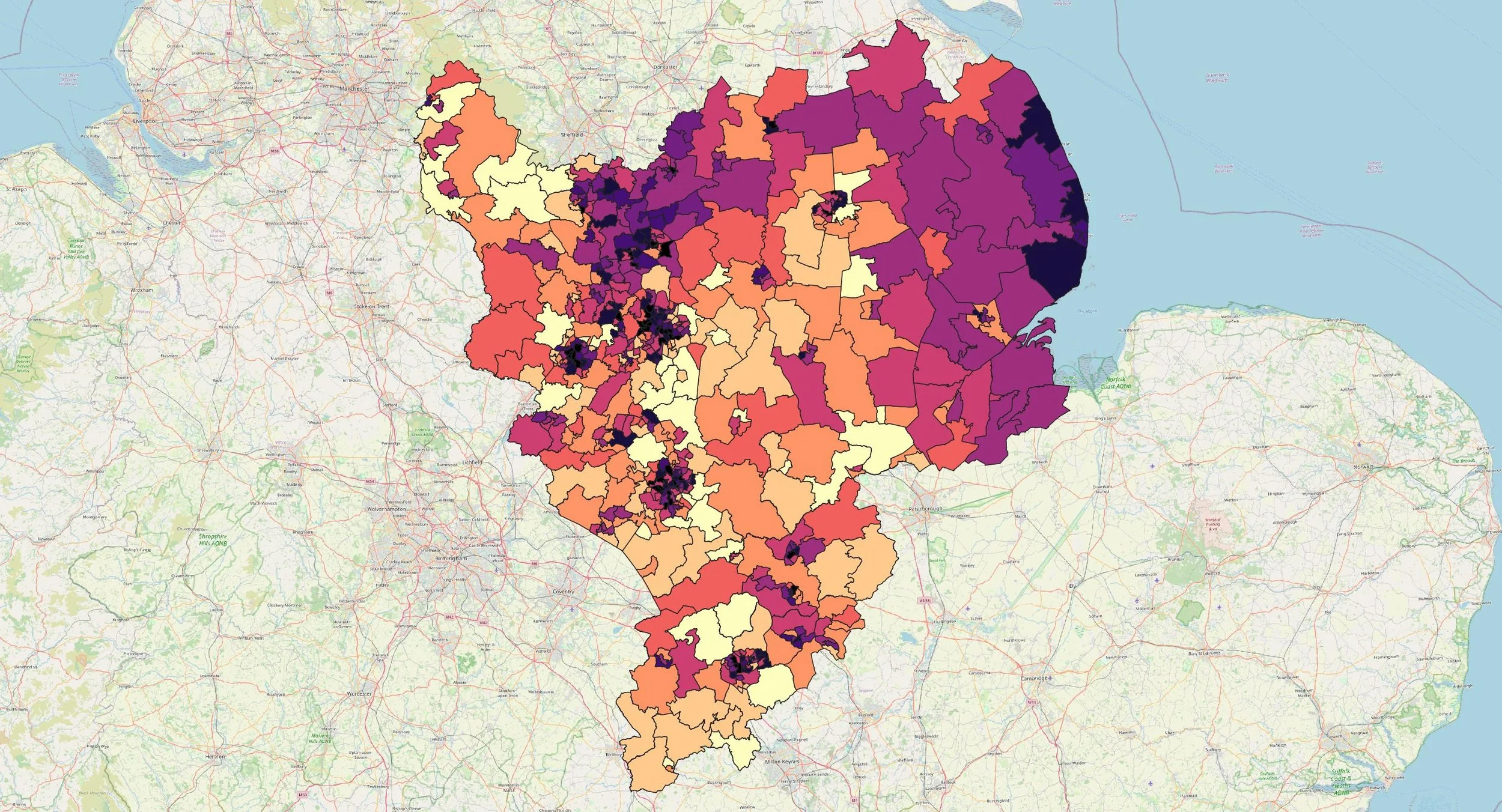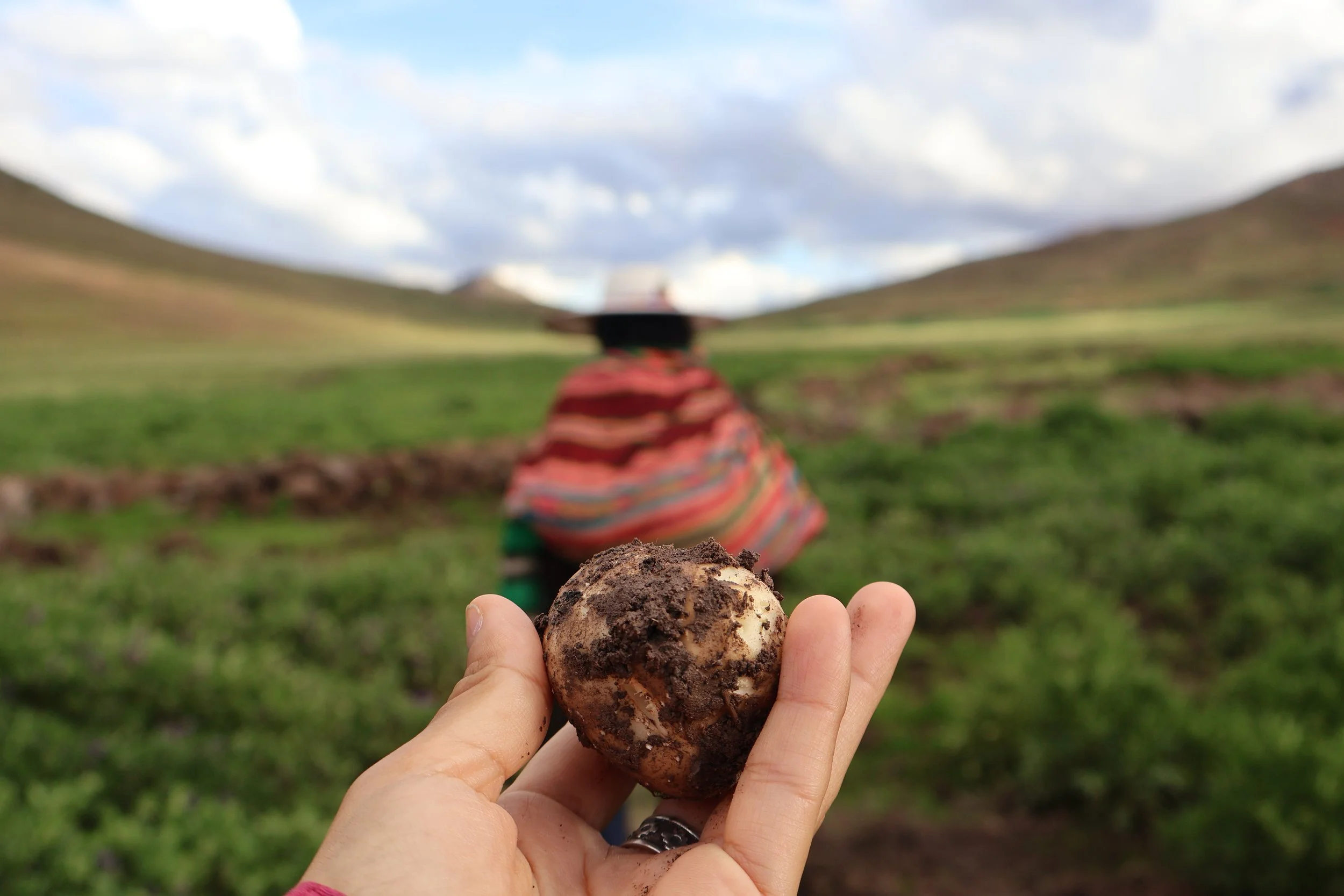Ecological Being & Land Relations: Part Two
by Hannah Yu-Pearson
October 2025
“These infrastructures hold and enable the mobility of knowledges, practices, calls and tools for justice and agency. In the construction and maintenance of these infrastructures we surface knowledges and imaginations that enrich and shape what health and healing could be, seeding deeper relationships and connections both to our own experiences as well as each other.”
I recently finished a Shared Assets training on data for housing and land justice, it was a series of workshops called ‘who owns what?’. Sometimes, the most material and tangible things, such as Land, property, our homes, are the very things that become abstractions, hard to hold and contextualise. This training was to bring forward, through data tools (Land Explorer) and FOI requests, narrative, storytelling, and power mapping, what is determining Land relations, and the vast array of injustices that occur as a result.
It’s true that Land has become intangible and seemingly too macro for the struggles we face daily in our advocacy for health and justice. In this training as well as in our work at Centric Lab, we ideate, strategise and organise towards making visible what is really at play, using and expanding the notion of data, getting precise and granular about the dynamics and relationships that are determining such poor health outcomes. In doing so we can also simultaneously build pathways towards alternatives that are health giving and healing. These processes may not immediately name Land and its relations, yet the possibility of ending up there is made possible and not obscured.
Who owns what? Who governs what? Who, now and historically, is ultimately behind and responsible for certain Land use, Land exclusion and Land exploitation, and therefore the experience and likely exclusion and exploitation of those living in these areas? Inclusive of elemental kin. We are existing in another’s imagination that is wildly incompatible for our collective health, so it is difficult not to question what collective healing is possible within these current conditions.
A visualisation from our Biological Inequity Index focused on the East Midlands region. Darker colours indicate higher levels of biological inequity. This data-led tool was created to visualise the underlying conditions that worsen health outcomes due to factors of place.
A place to build relationality
When Land is inaccessible to us, how do we even begin this process of kinship? A pathway towards relationality is a basic premise and an action that is available to all of us. We begin with each other, in building communality, in experiencing belonging, in remembering. We recently visited the aunties at one of Coffee Afrik’s women’s hubs, and through the remembering and the telling of stories, a blueprint of rich belonging and communality was shared. It is in this belonging that health and ill health are held and tended to, witnessed, understood, contextualised and organised around.
These steps towards health justice require infrastructure, whether that’s spatial, social, or knowledge, as experienced in the women’s hub. Centric Lab’s role as an infrastructural organisation attempts to scaffold this journey towards healing justice. From building tools and methodologies that help us to capture, understand and analyse our conditions (Right to Know, CHIAT, AiK Survey), to learning journeys that create infrastructures of solidarity (CHIA, EHiN, AiK Academy, Healthcare workers for Health Justice), to spaces of communality and autonomy (Obesity justice, Trans migrant and refugee health justice). These infrastructures hold and enable the mobility of knowledges, practices, calls and tools for justice and agency. In the construction and maintenance of these infrastructures we surface knowledges and imaginations that enrich and shape what health and healing could be, seeding deeper relationships and connections both to our own experiences as well as each other.
These programmes appear divorced from Land or limited to shared experience or context - air pollution, planning policy, obesity. Yet the processes and methodologies capture principles and practices of connection, knowledge and imagination that move us towards ecological health justice, to holding many more moving and interdependent parts, to tiny steps towards repaired relationality. As Dr. Grace Carson wrote in her piece Colonization, U.S. Property Law, and the Right to Pollute, repair does not necessarily begin from changing ownership upon Land, but an imagination surrounding the Land and its relationality. In her piece she shared that the foundational premise of environmental protection in the US still posits that Land and Water are available for use and ownership, and so ultimately contamination, meaning instead of being a living relative it is still a commodity. She calls for us to imagine a legal framework where the earth is a relation.
At the start of this year we worked with Dr. Nataly Allasi Canales on her long term piece around Bitter Potatoes, in this piece she demonstrates how the story of the Bitter Potato holds the story and survival of her Peoples in the Andes. “Within the life and history of the Bitter Potato lies a story of solidarity and Kinship between Peoples, Land, and more-than-human Kin. It’s also a beautiful example of interdependent survival. As the Potato nourishes the Peoples, they simultaneously guarantee their own survival on earth.” This piece shows how ultimately our survival, not only our health, depends on kinship, and for those of us that are out of relationship, there must always be pathways back, even if it is only a seeding that will take generations to grow.
To even begin to practice this type of relation requires a level of infrastructure to support and surface the possibilities of these knowledges and relationships, with each other and the world around us. The infrastructures we build at Centric are practices of this imagination.
One of Nataly’s pictures from her work in the Andes, captured in Bitter Potatoes on Healingimaginations.org
Hannah will continue to share notes on her journey as a director of Centric Lab weaving Ecological Justice throughout the Lab’s work. At the moment Hannah is currently working on the Introduction to Ecological Health and Community Health Impact Assessment learning programmes, steering the Polluters Playbook for Air is Kin, and working with Coffee Afrik CIC on a project on memory, archiving, and ecological justice for diasporic communities. You can reach Hannah via email: hannah at thecentriclab dot com


